I'm new to C and I'm trying to open a file and print its content line by line to console.
The source code is attached along with a couple screen shots to show my situation. (The redded-out part contain my computer's directories and personal info). As you can see from the screenshot, the program prints "before" but not "after". Of course, neither does it print out anything from coc.txt.
I can't figure out why this is the case. Everything seems correct and I don't see any errors.
#include <stdio.h>
#include <stdlib.h> // For exit()
const int MAX_LINE_LENGTH = 300;
int main() {
FILE *inputFile;
inputFile = fopen("coc.txt", "r");
char lineRead[MAX_LINE_LENGTH];
printf("before\n");
while(!feof(inputFile)) {
fgets(lineRead, MAX_LINE_LENGTH, inputFile);
puts(lineRead);
}
fclose(inputFile);
printf("after\n");
}
console
coc.txt

